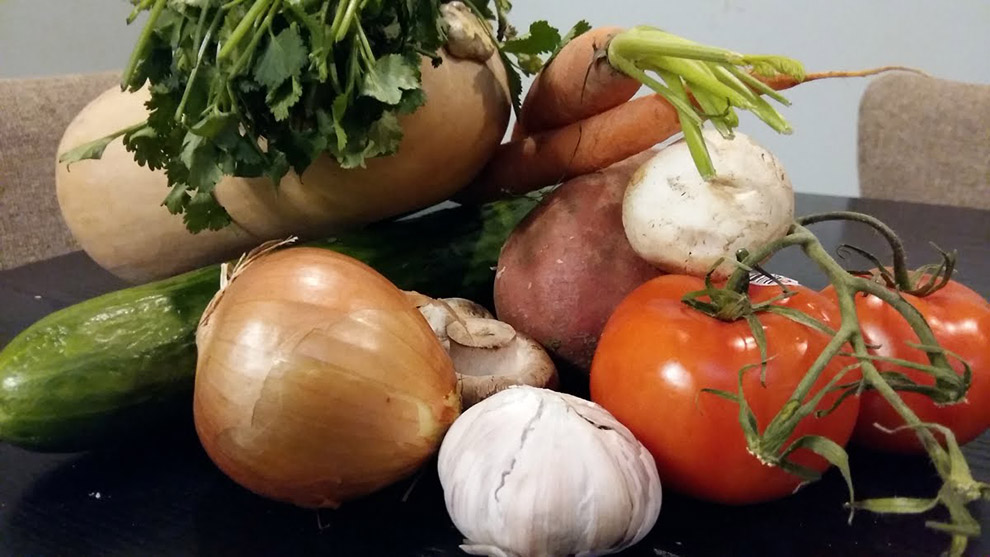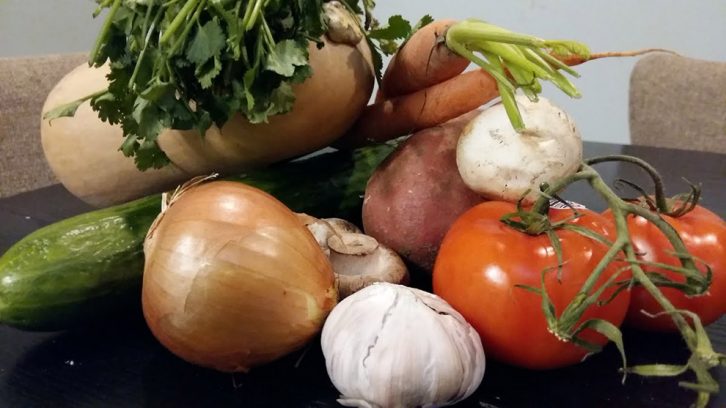FARMING
Farmers get more funding help to truck limestone for ‘happy’ plants
Limestone Trucking Assistance Program for Nova Scotia farmers updated this year

caption
Unlike these other products as wood ask or biosolids, which are also fertilizers, limestone only changes pH level, Eisses says.
caption
Amanda Eisses says limestone is needed to help grow these fruits and vegetables.Farmers now have access to $10,000 more in provincial support to cover necessary costs for limestone, an agent for growable soil for fruits, vegetables and grains in Nova Scotia.
“It’s good (the government is) recognizing the value in it because it is a constant battle for keeping pH, so we can have productive soils,” said Truro farmer Amanda Eisses of the Nova Scotia Federation of Agriculture.
Compared to previous years, where there was one intake period of three months between January and February, the Limestone Trucking Assistance Program now has two intake periods. Farmers have four months each to apply. The province is accepting the first round of applications from Jan. 15 until April 1, followed by a second round from July to October. Qualifying farmers can can receive up to $20,000 in reimbursements for transportation costs between mine and farmer.
Eisses said that having an added intake period means people can now begin the liming process earlier, which takes up to six months.
She said almost every farmer in Nova Scotia uses limestone because Nova Scotia has acidic soils.
“Plants are very picky,” said Eisses. “They want to be in their happy zone.”
Most farmers want a pH level of 6.5, said Eisses. She said limestone is just one agent farmers are using to maintain optimal pH levels for fertile soil. She said some farmers choose wood ash or biosolids instead because it is also a fertilizer.
According to a 2006 report by the Nova Scotia Federation of Agriculture, limestone is used to offset Nova Scotia’s naturally high soil acidity compounded by acid rain created from the release of sulphur dioxide nitrogen oxides into the air.
Eisses said transportation costs depend on the starting pH level, the density of the soil, how many acres are needed to cover, the distance the farmer is from the mine and the trucking company charges per load.
Eisses, who buys her lime in Upper Musquodoboit, said it costs $39 per ton. While she does not qualify for the program because she has her own truck, she has clients who do.
In an email on Monday, Agricultural Minister Keith Colwell said the changes to the limestone trucking program will ensure larger farms get access to the limestone they need.
“The roads close to large trucks in the spring, so the ability to order the lime and spread it; whether the roads are closed or not, (it) gives farmers a good head start to get their fields ready for the season,” he said.
About the author

Karli Zschogner
Karli Zschogner is part Nova Scotian and recently moved to Halifax for Journalism at the University of King's College. After her Bachelors in...
